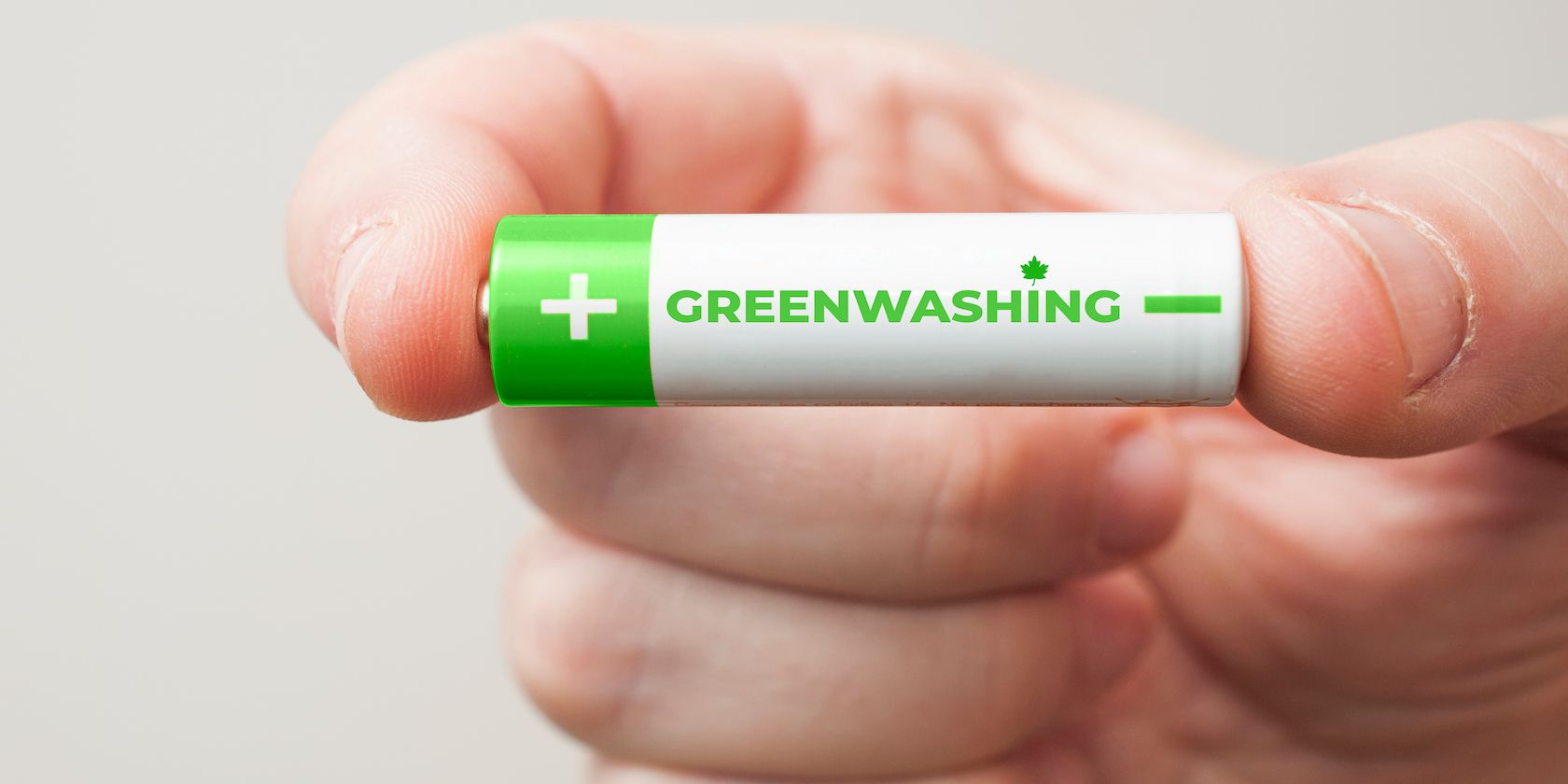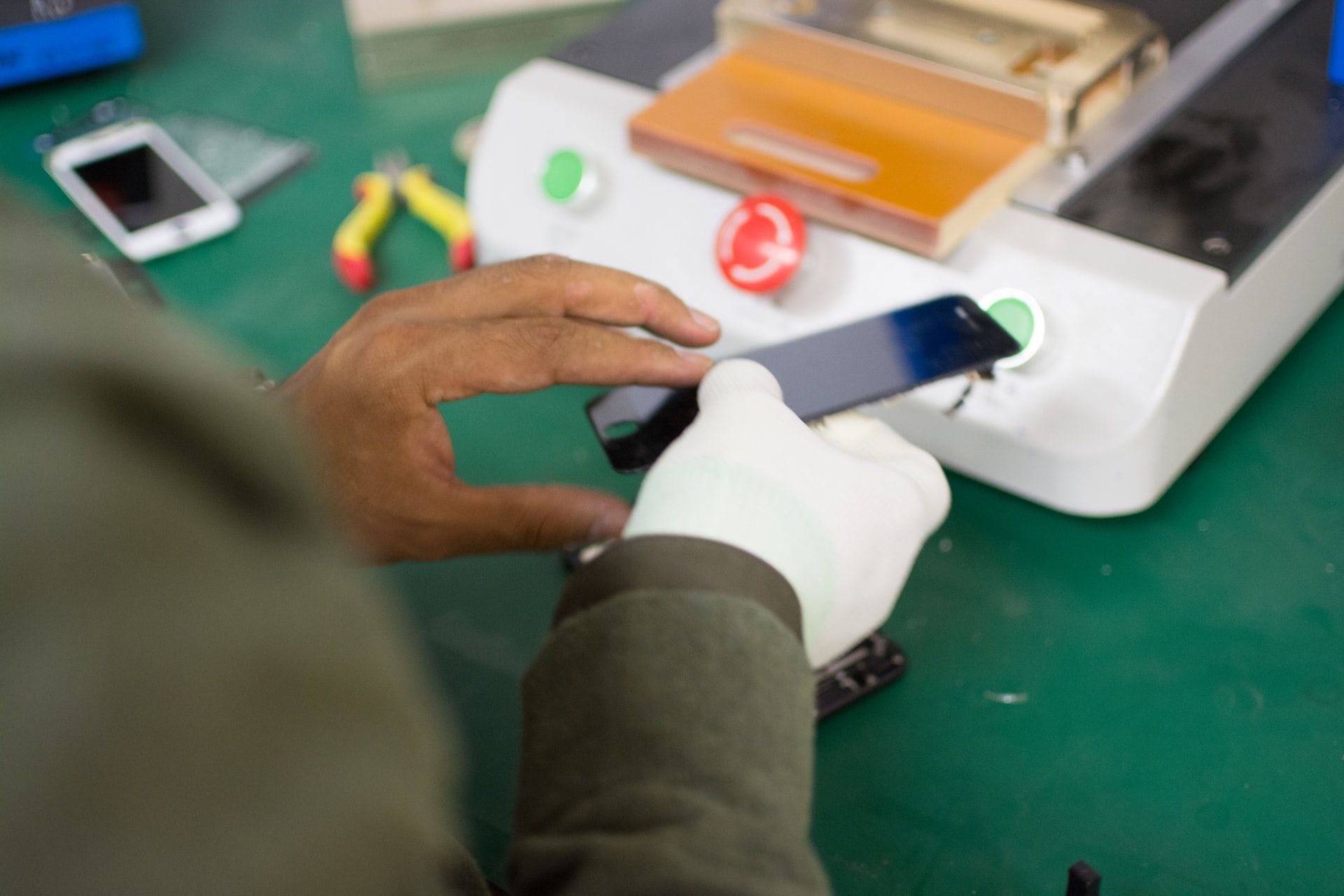With the impacts of climate change becoming ever-clearer in most people's minds, businesses have started to realize the importance of being seen to do right by the environment. Some companies make broad, sweeping changes to their operation, while others are more content with the illusion of progress.
The practice of misleading consumers about a company's ethical credentials is known as greenwashing. The term, first used in 1986, has particular relevance in the consumer technology industry. Electronics are environmentally destructive to produce and mostly impractical to recycle.
As a result, it's best to treat environmentally-friendly technology and hardware claims, especially from the Big Tech firms, with a degree of suspicion.
What Is Greenwashing?
Greenwashing is the practice of misleading consumers about a company's or product's environmental credentials. The term, first used in 1986 by Jay Westervelt, has become prevalent in recent years due to an increased awareness of our impact on the planet and the risks of climate change. In response to changing consumer values, businesses have leaned into environmental terminology to align themselves with current trends.
However, many would argue that capitalism, where consumption is not only encouraged but expected, naturally produces waste and harm to the planet. Even if a company's staff are genuinely committed to change, the problem is complex and global and not an issue a single company can overcome on its own. It would take a collective effort from institutions and governments worldwide to make the dramatic shifts required to avert a climate emergency.
Unfortunately, consumption and tackling climate change are often in conflict with one another. As every business needs to generate revenue to support its staff, many have taken short-term action to change some areas or claim that they have. If you're aware of your purchases' environmental impact, the choices you make may be swayed by the ethical stance taken by one company or product over another.
This leads to the practice of greenwashing. In some instances, these will be marketing claims about the product's environmental credentials, like noting the use of recycled packaging or adding a vegan-friendly label. These are not bad things in themselves but can sometimes be used to mislead you about the business as a whole. Similarly, there's a debate as to whether electronics can ever really be vegan.
For example, oil companies like BP and Shell make loud claims about their climate change reduction investments. However, at the core of each oil company is a business model generating revenue from environmentally damaging production lines and products. Whether the company plants some trees or not is immaterial, as the core product contributes to climate change.
The Upgrade Cycle
Environmentalists have campaigned for decades to bring about environmentally-focused improvements. Some, like recycling, have become part of everyday life. However, in the past 30 years, consumer technology has become a vast industry. We now have numerous electronic devices in our homes, offices, vehicles, and pockets.
This seemingly endless innovation and reinvention has used a lot of the planet's natural resources. The progress made in such a short space of time is astounding, though, with affordable electronics now put to interesting use. For instance, researchers have used a Raspberry Pi and sensors to communicate with spinach plants.
Many technologies have also reached a maturity level where there is no longer a level of innovation to justify investing in a new product or device. For example, televisions have remained broadly similar since the inclusion of HD resolutions. There have been improvements, like 4K and more recently high-end devices with 8K resolution, but these are incremental improvements, not quite drastic enough to justify replacing your current TV.
Tech companies are aware of this and have increasingly turned to marketing and incentives to get us to purchase their latest products. The electric vehicle manufacturer, Tesla, recently invested in Bitcoin, with the hope of allowing customers to purchase their vehicle with the cryptocurrency. However, in doing so, Tesla damaged its environmental credentials.
If you've seen a car ad in the past decade or so, it tries to sell you a lifestyle and often has little to do with the car itself. The same is true of smartphones, where ads and promotional materials focus on snapping photos of friends, listening to music while on vacation, or updating your social profiles.
Planned Obsolescence
Some designers and manufacturers also intentionally limit their devices' functionality over time to encourage you to upgrade to the latest model. Apple, for example, has come under a lot of criticism for its use of planned obsolescence. The company restricts older iPhones' performance by refusing to update your smartphone to the latest operating system or adding software-based constraints to the physical hardware.
This isn't limited to Apple, although they are infamous for indulging in this behavior. However, this happens regularly across all forms of consumer technology. The problem has been exacerbated by internet connectivity, too. As most of our gadgets now continually connected to the internet, the company can release a software update, reach into your home, and brick or degrade your devices.
The audio manufacturer Sonos has twice found itself receiving criticism for some of its practices. In December 2019, an electronics repairer criticized the company's Recycle Mode. To incentivize Sonos users to upgrade to the latest models, a trade-in program was put in place.
When the second-hand unit was processed, the Recycle Mode was activated, permanently bricking the device after 21 days. This was seen as a highly wasteful practice, which Sonos subsequently reversed. Not long after, in January 2020, the company said that it would end support for speakers made before 2015.
As a result, you may have purchased an expensive connected speaker, only to have it lose functionality after just a few years. Following the online backlash to the plans, Sonos reversed its decision. While this is not a problem unique to Sonos, it does offer some hope. When we collectively stand against these wasteful and damaging practices, the businesses often respond to customer criticism.
Marketing and Critical Thinking
You may sometimes come across superficially positive marketing materials. The companies use statements like "100% green technology" and "environmentally-friendly" or even "derived from nature." As words relating to environmentalism and climate change---like nature, green, and sustainability---are all quite hard to accurately define, they often are context-reliant.
Suppose a conservation charity releases a statement noting its use of sustainable resources. In that case, the organization can credibly talk about those areas, giving you a higher degree of confidence in the information's trustworthiness. However, for-profit technology businesses are often trying to convince you to buy a product. They like to appeal to certain types of customers or interests. Marketing materials are there to persuade you to part with your hard-earned income.
It's helpful to be critical of how they present this information. If you see the words "derived from nature," what exactly does that mean? You could argue that all products are derived from nature, as even human-made resources like plastic are primarily composed of oil, a natural resource. Similarly, the company could use it to mean the design was inspired by a process in nature.
For instance, plane designers often take guidance on the aerodynamic design from birds, although you'd be hard-stretched to argue that airplanes are derived from nature. Likewise, as businesses have realized that more people are now aware of the environmental impact of their purchases, phrases like environmentally-friendly are increasingly commonplace.
However, unless the company expressly lays out its environmental credentials, it's unclear what most businesses mean by this. The same is true of claims of green technology. Without detailing precisely what they mean by this, it could just as well be a reference to the color of paint used.
The Right to Repair
Whether you can buy environmentally-friendly technology is open for debate. As the term means different things to different people, you may see green claims like this added to a wide range of products. However, at the core of the issue is the use of resources. Most of us already own a smartphone, laptop, and television, so unless faulty or no longer working, it might not make sense to upgrade and use more natural resources.
There will be situations, though, where you need to invest in a new device, perhaps for work or a particular feature. Sometimes this is unavoidable, but it could also be a result of planned obsolescence. Similarly, to prevent unnecessary waste, we should be able to repair our electronic devices. However, as a longer-lasting product means fewer new items purchased, many companies restrict your ability to repair your hardware.
Sometimes, you'll see stickers or warnings that opening the device would void the warranty. Other times, the design makes it tricky, if not impossible, to open the product without permanent damage safely. It's for these reasons that the Right to Repair movement exists. There are various organizations worldwide campaigning for societal and legal change to prevent these unfriendly and wasteful practices.
Although interest in the movement had been gradually increasing, the COVID-19 pandemic created an upsurge in support for repair-based legislation. As businesses around the world closed during lockdowns, people became aware of the difficulty of repairing their essential electronics and the importance of doing so. In the US, The Repair Association campaigns for the right to repair, and there are currently over 25 states considering legislative proposals.
Protecting The Environment
Some people argue that most forms of consumption, like buying electronics, are inherently damaging to the planet. However, that outlook doesn't value the significant societal value of a connected world.
For most purposes, it's essential to get online. Whether you're looking for a job, working remotely, or interacting with governmental offices, most critical services are now digital.
We don't have to entirely avoid electronic devices to be mindful of our impact on the planet. The most sustainable way to use electronics is to own them until they fail. Even then, if possible, you can repair them to improve their lifespan.
If you do need to purchase a new device, don't throw the old one away. You can recycle it or use a trade-in program to get a discount on your purchase. If it still works, you could even sell it on to give it a second life.



